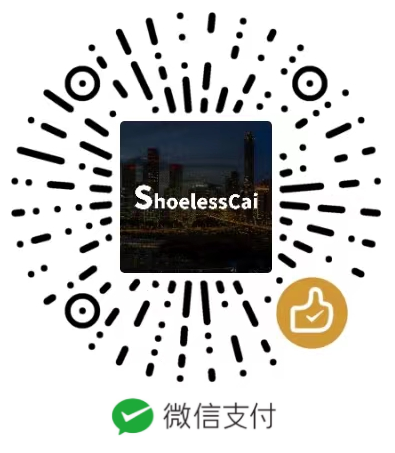
Cover Story: People work at the Illuminate USA plant in Pataskala. 工厂,美国
Photographer: Maddie McGarvey/Bloomberg
彭博推送 | 中国太阳能巨头在俄亥俄
Jingyi 翻译。
译文
太阳能故事
Illuminate USA 生长在俄亥俄的玉米地,四处蔓延,至新的太阳能工厂,还有嗡嗡声。数以百计的新雇佣员工,吊装托盘,焊接设备,以及检查他们的工作,例如,玻璃片转移到艺术般的光伏板。他们收集时薪,大概是美国最低工资的两倍。工厂也交付合同,在电工和供应商领域。
hoisting pallets 吊装托盘
hoisting 吊起,提升
soldering 焊接
photovoltaic 光伏发电
photovoltaic panel 光伏板
从外面看,这些都是 21 世纪清洁能源制造爆发的地标,由拜登政府承诺支持,结果大面积刺激,被设计来重新建造国家的造诣,在一个被中国主导的市场。
sweeping incentives 大面积刺激
prowess 造诣,高超的技能
在现实中,那些看上去是国内商业凯旋,也是美国基础行业和地理对手的爆发。美国最大的私人可再生的能源开发,拥有股份 51%,例如,Longi Green Energy Tech.Co.,中国的太阳能巨头,拥有其他 48% 股权,拥有 51% 股权,以及公司人才,技术或者供应链,大量生产不用支付关税的设备,主要针对美国市场。
churn out 大量生产
合资公司能从中获益数百万美圆,在经济发展刺激和税收额度方面,额度用于国内清洁能源生产。这部分 Longi 倡导站在中国对立面征税,以及加深其立足点,在全世界高速发展的太阳能市场中的其中一家企业。
foothold 立足点
公司驻扎在或者至少能够连接到中国(的话),就能复制美国公司的商业决策。他们制造以及计划,至少制造 10 家工厂,至少 30 Giga 瓦特,具有模块制造的产能,依据彭博观点,关于公开声称、文档和其他文件综合考虑素质。
美国制造商哭得很厉害,说到,这些因素暗中破坏他们的祈求,关于建造国内太阳能供应链。尽管其他国家已然李泳豪内部评级法的津贴(IRA),政治反对者仍然将目标聚焦于中国的投资。双边主义者的动量正在国会上建立,以锁定中国支持的公司,从申报生产制造的税额,依据央行要求,到能源转移 —— 这个范畴伸展至太阳能板之外,触达电动汽车和电池领域。
在俄亥俄,退休的中学自然常识课教师 Eileen DeRolf 已然对外发布批判性言论,关于 Illuminate,及其政策,并将该政策汇报到 Pataskala。她指出自己交的税,从一项在城市颁布的 15 年的减排税,在全国颁布的400 百万美圆的刺激,发展计划,没提及(尚在完工的)3.5万亿美元的潜在年度税收津贴,来自于通胀减少法案。
abatement 减免
“我碰巧没有特别要求地缘政治的头号敌人,在我们的经济体系内获得利益。” DeRolf 说到。
Illumination 以及其美国和中国的母公司,有不同看法。他们指向高薪工作涌入,以及指向生产制造复活,在一个告诉发展的经济板块。
influx of well-paying jobs 高薪工作涌入
resurrection 复活
“我们是主要成分是美国公司”John Duer 说到,Illumination 首席法务官,“我们拥有主要合伙关系在中国,但我们并不是试图在美国做生意的中国公司”。
更多环保新闻
耐克执行官发现一件骇人听闻的事情,在 90 年代早些时候。
气体被泵进 Nike Air 系列,这是一款专业运动鞋,特别制造,用于弹性自恢复。但是,大的、紧密连接的分子,六氟化硫(sulfur hexafluoride),也成为了世界上最具效力的温室气体 —— 2.43 万倍于 更加精确污染的碳氧化物。Air Jordans 和 耐克公司其他流行的鞋子,产量过多了,对于全世界而言。光是俄勒冈这个州,(这些鞋子产量)是轿车产量的一半。
球鞋巨头花了数千万美元,超过 14 年的实践,找出替代品,逐渐于 2006 年宣称,他们淘汰了所有会锁住热量的气体(装进鞋子的),不能进鞋子。并非在每年的气候历史上称为历史原材料,取而代之的是,耐克 10 年以来的环境问题,突然再次相关了 —— 以及其风险敞口是关键弱点,在如今的碳市场。
这是由于 耐克,随着其 10 年前完成了气体替代,最终决定将 六氟化硫 减少,并开启项目用 碳 抵补。该项目当时获得了很少的气体搜集,没有人使用那些额度,最近 10 年的情况。然而,项目今年早些时候重新浮现,同时超过 120 万耐克额度躺在账上。正如碳排放市场试图修复慢性缺陷,将其置于旋转(上升)的情况。
chronic flaws 慢性缺陷
Harris 整获得一系列气候相关建议。环境主意者以及前咨询顾问也列出了他们的解决方案,这些方案 Harris 赢得选举之后,完全看可以自己部署在拜登之前搭建的基础上。
JP Morgan 警告 AI 的水数据(water toll),美国水资源管理署已然过度使用了,正进一步加大工作量,因其 AI 突然爆发,依据一则来自银行及可持续发展咨询部 ERM 的新闻。
sulfur hexafluoride 六氟化硫
toll 伤亡人数
德国有一项计划,处理太阳能的超供给(oversupply)。该国将会减少搜集太阳能的生产装置,以使得津贴成为可能,作为批发能源价格,经常跌到负数,通常发生在供超过求的数小时之内。
值得一听
作为共和党和民主党的拉票者,开启最后推动,来获取美国的投票结果。著名技术投资人 Vinod Khosla 已然决定投 Harris 一票了,他脑海中有着特殊观众:Elon Musk。在其亿万富翁同事所拥有的媒体平台上,Khosla 推动这件事,一系列的“填词”推文(X posts),其前总统特朗普并非正确人选,对于这个星球的未来而言。尽管 Khosla 是前共和党人,他在一场采访中说,他将会投票给 Harris。但是他并不期待科技投资人看到太多余波,无论谁胜出。“我并不认为,会有任何差异,在政策制定方面,两党关于科技的问题”。
canvassers 拉票者
X posts “填词”推文
fallout 后果,余波
原文
A solar story
Nestled among the corn fields of Pataskala, Ohio, Illuminate USA’s sprawling new solar factory is buzzing. Hundreds of freshly hired local employees are hoisting pallets, soldering equipment and inspecting their work as sheets of glass are transformed into state-of-the-art photovoltaic panels. They’re collecting hourly wages that start at double the state minimum. The factory has also delivered contracts to area electricians and suppliers.
From the outside, these are the hallmarks of the 21st century clean energy manufacturing boom promised by the Biden administration, the result of sweeping incentives designed to restore national prowess in a market dominated by China.
In reality, what looks like a domestic triumph is also a win for America’s primary industrial and geopolitical rival. Invenergy, America’s biggest private renewable power developer, owns 51% of the plant. Longi Green Energy Technology Co., the Chinese solar giant, owns the other 49%, and it’s Longi’s panel-making expertise, technology and supply chain that are churning out tariff-free equipment for the US market.
The joint venture benefits from millions in economic development incentives and federal tax credits for domestic clean energy manufacturing. For its part, Longi avoids anti-China tariffs and deepens its foothold in one of the world’s fastest-growing solar markets.
Companies based in or linked to China are replicating the strategy across the US. They are building or planning to build at least a dozen plants with 30 gigawatts of module-making capacity, according to a Bloomberg review of public statements, filings and other documentation.
American manufacturers are crying foul, saying these factories undermine their quest to build a domestic solar supply chain. Although other countries have taken advantage of the IRA’s subsidies, political objections have focused on Chinese investment. Bipartisan momentum is building in Congress to block China-backed firms from claiming tax credits for manufacturing anything central to the energy transition—a category that extends beyond solar panels to electric vehicles and batteries.
In Ohio, retired middle-school science teacher Eileen DeRolf has become an outspoken critic of Illuminate and the policies that brought it to Pataskala. She points to a 15-year tax abatement from the city and $4 million in incentives from a state economic development agency, to say nothing of the $350 million in potential annual tax subsidies from the Inflation Reduction Act.
“I happen to not particularly want our geopolitical No. 1 enemy to benefit off our economic system,” DeRolf said.
Illuminate and its American and Chinese parent companies see it differently. They point to an influx of well-paying jobs and to a resurrection of manufacturing in a fast-growing sector of the economy.
“We’re a majority-owned American company,” said John Duer, Illuminate’s chief legal officer. “We have a minority partner based in China. We’re not a Chinese company trying to do business in the US.”
More from Green
Nike executives made a startling discovery in the early 1990s.
The gas pumped into the soles of the Nike Air series of athletic shoes created an exceptionally resilient cushion. But the large, tightly-linked molecules of sulfur hexafluoride also make it the planet’s most powerful greenhouse gas — 24,300-times more potent than carbon dioxide. Air Jordans and Nike Inc.’s other popular shoes, it turns out, were overheating the planet as much as half the cars in its home state of Oregon.
The sneaker giant spent tens of millions of dollars over the next 14 years to find a replacement, eventually declaring in 2006 that it had eliminated all heat-trapping gases from its shoes. Instead of fading into the annals of climate history, however, Nike’s decades-old environmental problem has suddenly become relevant again — and it’s exposing a key weakness in today’s carbon market.
That’s because Nike, as it finished its gas substitution work two decades ago, decided to turn its sulfur hexafluoride reductions into a carbon-offset project. The project gained little traction at the time; and nobody has used any of these credits in nearly a decade. But the project re-emerged earlier this year, with more than 1.2 million Nike credits surfacing, just as the market for carbon offsets attempts to fix the chronic flaws that have sent it into a spiral.
Kamala Harris is getting plenty of climate advice. Environmentalists and former advisers have outlined their prescriptions for ways a victorious Harris could build on Biden-era climate initiatives.
JP Morgan warns of AI’s water toll. US water resources, already overstretched, are being further stressed by the boom in artificial intelligence, according to a new report from the bank and sustainability consultancy ERM.
Germany has a plan to deal with solar power oversupply. The country will narrow the pool of solar producers that are eligible for subsidies as wholesale power prices frequently turn negative during hours when supply exceeds demand.
Worth a listen
As Republican and Democratic canvassers make their final push to get out the US vote, the famed tech investor Vinod Khosla has been making the case for Vice President Kamala Harris with a very specific audience in mind: Elon Musk. On the social media platform owned by his fellow billionaire, Khosla has pressed the case in a series of X posts that former President Donald Trump is the wrong candidate for the future of the planet. Although Khosla is a former Republican, he says in an interview that he will be voting for Harris. But he doesn’t expect tech investors to see much fallout no matter who wins. “I don't think there'll be any difference in policy between the two when it comes to tech.”
原文链接
长按/扫码,有您的支持,我们会更加努力!


|
